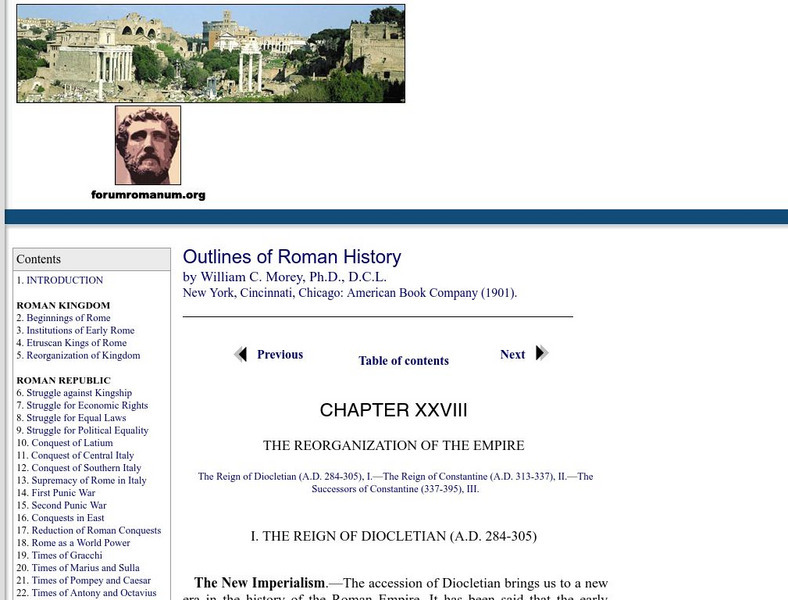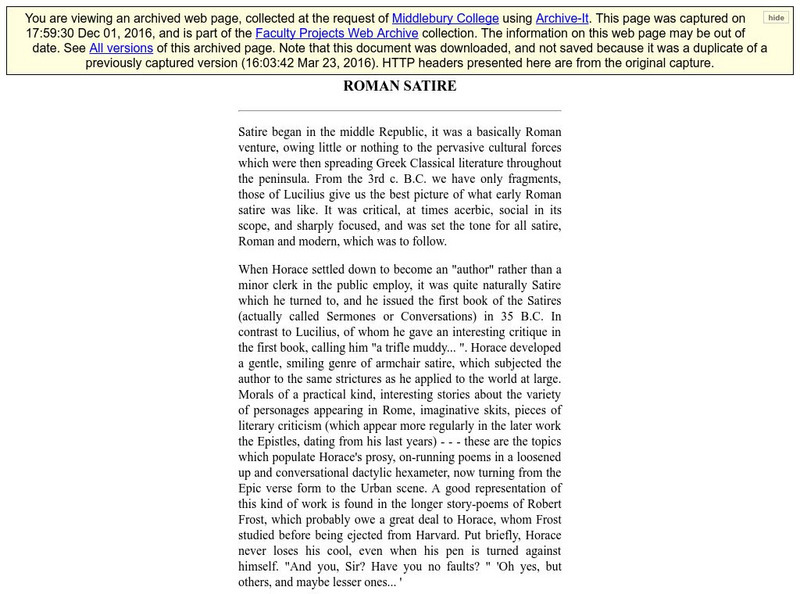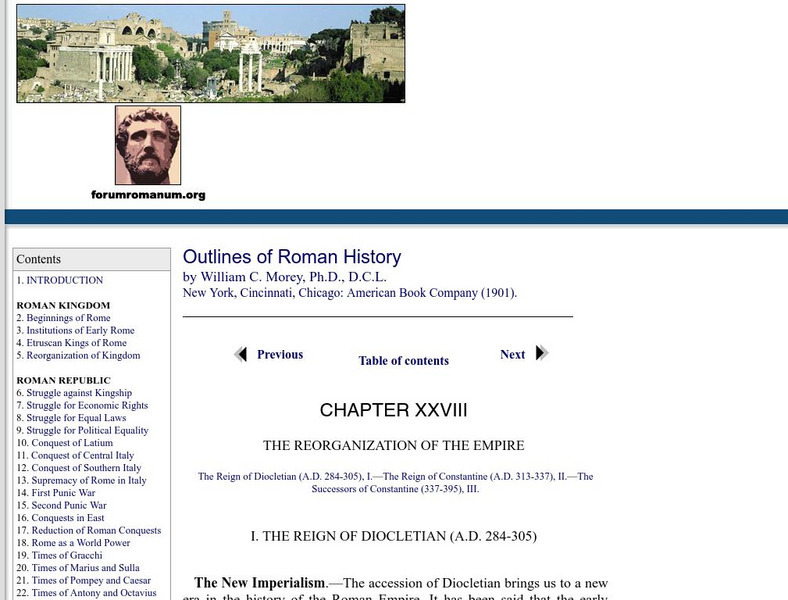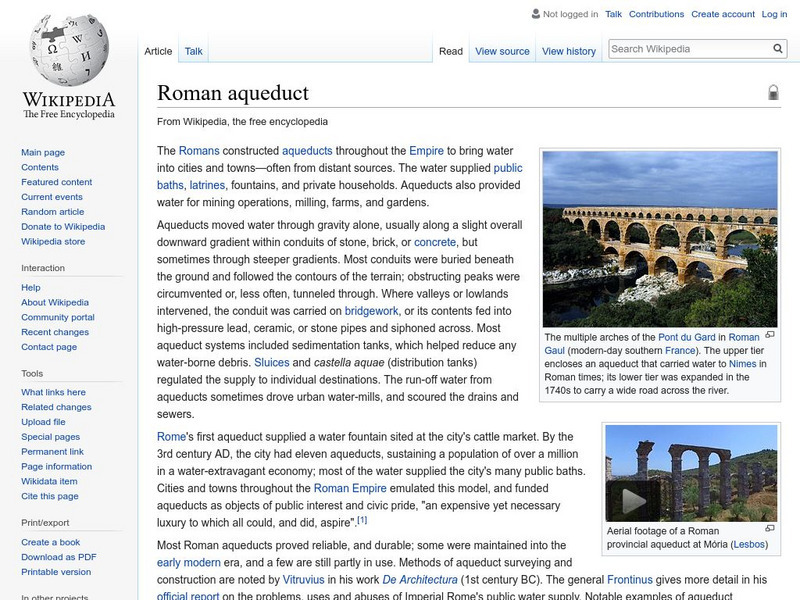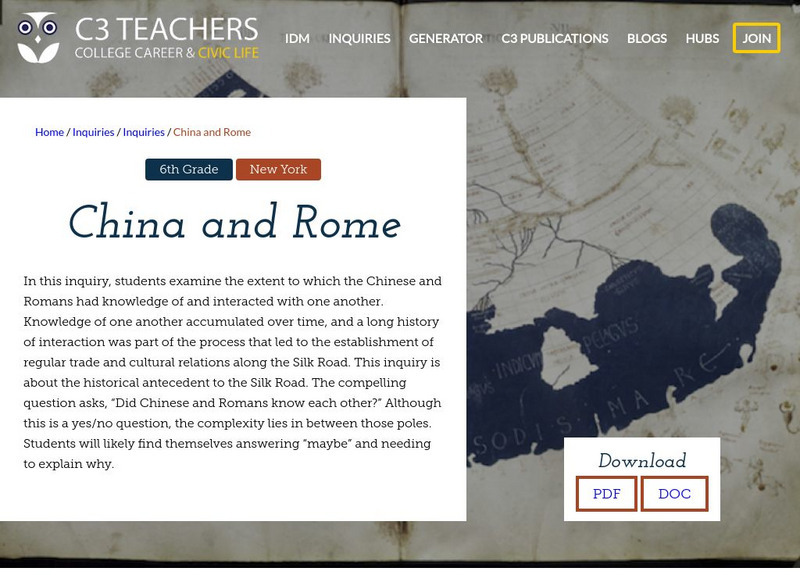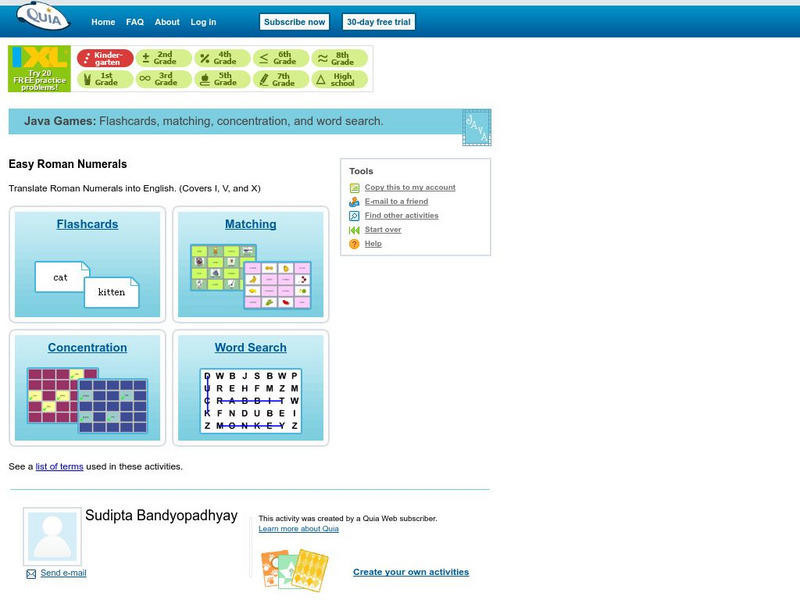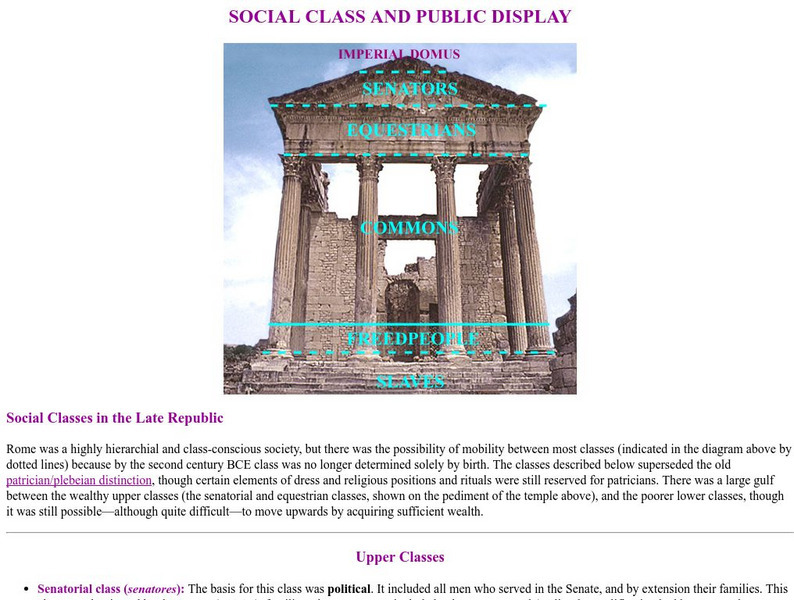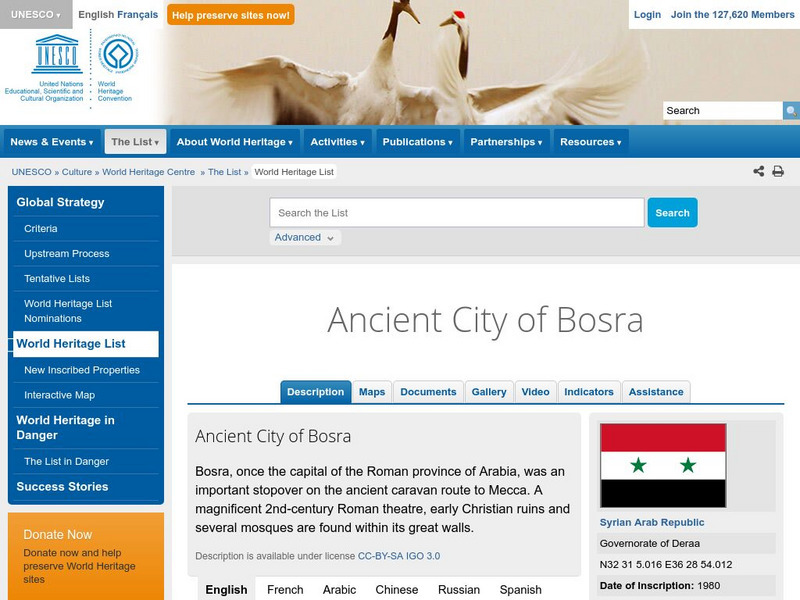Forum Romanum
Outlines of Roman History: Reorganization of Empire: Successors of Constantine
William Morey, in his 1901 textbook, tells of the fate of the Roman Empire after the death of Constantine.
Forum Romanum
Outlines of Roman History: Fall of the Western Empire
This last entry in William Morey's 1901 textbook tells about the final demise of the Roman Empire in the West, the fall of the Roman Empire.
Middlebury College
Middlebury College: Roman Satire
Middlebury College provides a very brief site describing the history of Roman Satire and some Roman writers, including Juvenal, Percius, and Horace.
University of Michigan
University of Michigan: A Taste of the Ancient World
A collection of articles on the various types of foods consumed in the ancient Greco-Roman world. Clicking on the items will provide information and pictures. Examples include grain, grapes, olive oil, fish and more.
Forum Romanum
Outlines of Roman History: Decline of the Empire: The Illyrian Emperors
In this article from the 1901 textbook by William Morey, you can read that the Roman empire had a period of stability before its further decline.
Forum Romanum
Outlines of Roman History: Reorganization of Empire: The Reign of Diocletian
The reign of Diocletian is discussed in this article from William Morey's 1901 textbook. Check out the chart that shows how the Roman Empire was split into East and West.
University of Florida
Baldwin Library: Stories of the Old Romans
A scanned copy of the 1899 publication of Stories of the Old Romans, a book of biographies for children.
Other
Heraldica: The Holy Roman Empire: Structure and Composition
Series of hyperlinked essays discuss facets of the Holy Roman Empire: its beginnings, structure, impact, and end.
Museum Network (UK)
Greek and Roman Myths: The Gallery
A gallery of artwork from 5 different museums housed in one domain. Search for the Greek or Roman character you are studying and find the appropriate artwork to suit. A "Whos Who" module contains a small description of each character,...
Rice University
Galileo Project: Procedure of the Roman Inquisition
This site from The Galileo Project of Rice University provides a medium length article describing the prosecution of the Roman Inquisition. The information is very interesting and worth checking out on the subject.
Forum Romanum
Outlines of Roman History: Decline of the Empire: Disintegration of Empire
This article from Morey's 1901 textbook recounts the attacks on the Roman Empire by the Sassinids from the east and the Germanic barbarians from the north.
Wikimedia
Wikipedia: Roman Aqueduct
Wikipedia offers detailed information on Roman aqueducts, artificial channels carrying water from one location to another. Includes images.
University of California
Uc Santa Barbara: The Holy Roman Empire
Read a historical outline of the Holy Roman Empire, from its beginnings in the 5th century to the formal dissolution of the empire in 1806.
BBC
Bbc: Bitesize: Did the Romans Conquer Scotland?
Find out why the Roman wanted to conquer Scotland, why they built walls, and why they eventually left Scotland in AD410.
Other
3rd Millennium Ministries: Calvinism v Roman Catholicism
This resource presents an examination of the basic differences between Calvinism and Roman Catholicism. Several major differences are explained, both those of today and at those the time of the Reformation.
American-Israeli Cooperative Enterprise
Jewish Virtual Library: Beit Govrin: A Roman Amphitheater
The Jewish Virtual Library offers an article on Beit Govrin, an area where remains of a Roman Amphitheater were discovered in the mid-1990s.
C3 Teachers
C3 Teachers: Inquiries: China and Rome
A learning module on relations between ancient China and Rome prior to the opening of the Silk Road trade route. It includes several supporting questions accompanied by formative tasks and source materials, followed by a summative...
Internet History Sourcebooks Project
Fordham University: Ancient History Sourcebook: Divine Augustus
This is a translation of an extensive Roman work on Augustus and his reign. His family, family history, childhood, the loss of his father, his military career, and more are discussed in this extensive study of his life.
United Nations
Unesco: Arles, Roman and Romanesque Monuments
This site from the United Nations Educational, Scientific and Cultural Organization provides a brief description of why Arles is a World Cultural Heritage site, with a photo. This is a brief, but factual site on the subject.
Then Again
Then Again: Web Chron: Roman Culture, Gladiators
North Park University provides a page on Roman Gladiators and the Colosseum. Includes image and links to more Roman Culture information.
The History Cat
The History Cat: Roman Gladiators
Learn all about gladiators, how to become one, the different types, the Imperial gladiatorial games, the Colosseum, and life as a gladiator.
Quia
Quia: Easy Roman Numerals
Students can choose from four different activities to learn about Roman numerals up to 20. Activities include flashcards, a word search, a matching game, and a game of concentration.
Vroma Project
V Roma Project: Social Class and Public Display
This resource describes the evolution of Roman social classes from the Republic to the Empire as well as how these classes would distinguish themselves in public. It describes the system of patronage seen in Roman society. It also...
United Nations
Unesco: Ancient City of Bosra
The ancient city of Bosra, a World Heritage site, is located in Syria. It was the capital of Arabia under the Romans, and sits along the route to Mecca taken by ancient travelers. It has monuments from the Nabataean, Roman, Byzantine and...
Other popular searches
- Romanticism
- American Romanticism
- Romanticism +Art
- Romantic Poetry
- Romania
- Romanticism Art
- Romanticism Unit
- English Romanticism
- British Romanticism
- Romance
- Romanticism Questions
- Romantic Opera
